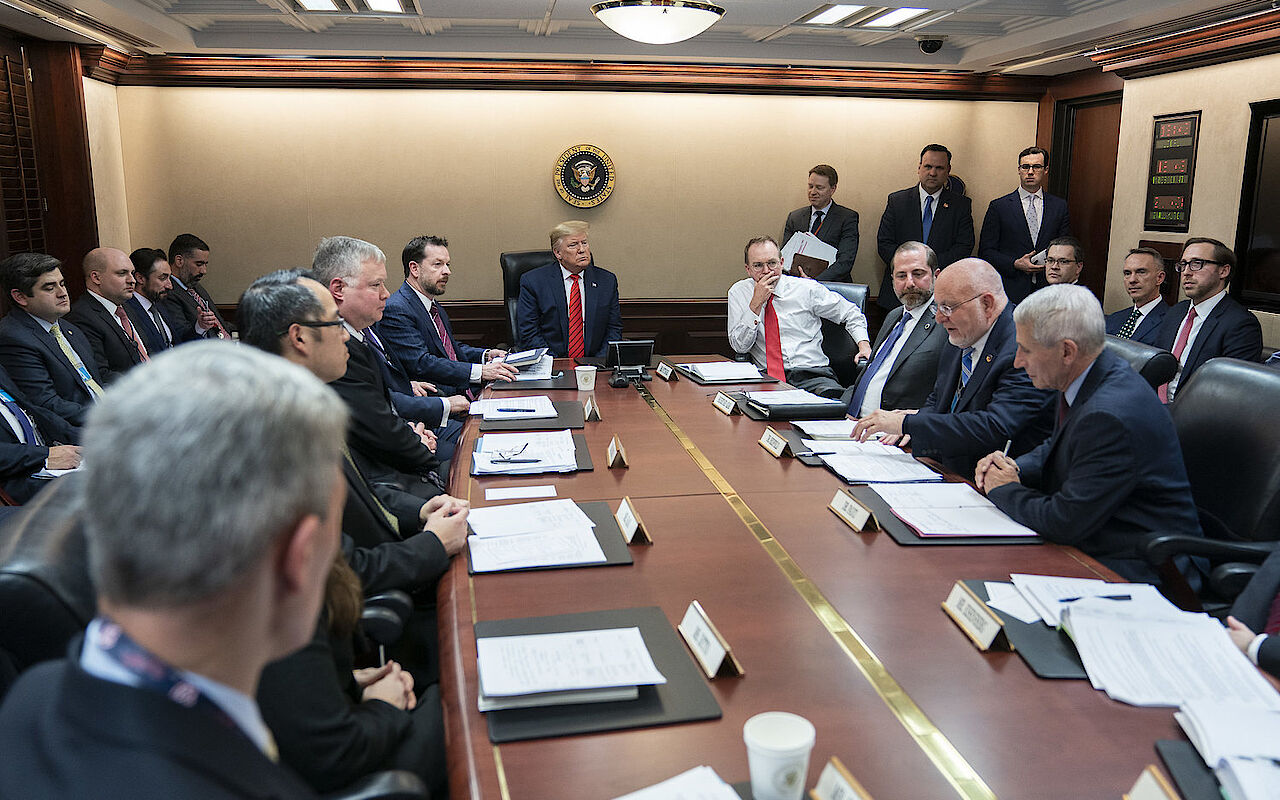

By Isha - Nov 08, 2024
Former U.S. President Donald Trump has appointed the first woman to serve as White House Chief of Staff, breaking a long-standing tradition. This move marks a monumental shift in the representation of women in top political positions and underscores the value of diversity in high-profile roles. The historic decision holds significance for gender equity and may inspire future generations of women to pursue careers in politics.

President Trump Addresses a Briefing on the Coronavirus via Flickr
LATEST
In a landmark decision, former U.S. President Donald Trump has announced the selection of the first woman to serve as White House Chief of Staff, marking a historic moment in American political history. The role of Chief of Staff, traditionally seen as one of the most powerful positions within the White House, serves as the primary point of contact between the President and the executive staff, often managing daily operations and acting as a key advisor to the administration. This appointment is not only a significant personal achievement for the selected individual but also a monumental shift in the representation of women in the upper echelons of U.S. politics.
The new Chief of Staff, whose name has yet to be officially confirmed in many reports, will be taking on responsibilities that are both vast and demanding. Historically, the role has required an individual capable of navigating complex political landscapes, managing competing interests, and supporting the President’s agenda amid a rapidly changing political environment. Trump’s decision to appoint a woman to this role for the first time signals a recognition of the value women bring to high-stakes executive positions. This choice reflects both a milestone in gender equity and a broader trend of increasing diversity within top political roles, especially in positions that have been traditionally male dominated.
The Chief of Staff role has traditionally been occupied by men with deep political connections or extensive military backgrounds. Previous Chiefs of Staff, including individuals like James Baker, Leon Panetta, and John Kelly, have managed delicate political affairs and served as powerful behind-the-scenes players in shaping U.S. policy. However, as public awareness of gender disparities in leadership roles grows, there has been a broader push for diverse representation in government, business, and beyond. Trump’s decision may thus be seen as a response to this call, with the hope of bringing fresh perspectives into the heart of the administration.
This historic selection may also carry a powerful symbolic weight, especially for young women who aspire to work in politics. By elevating a woman to this critical role, Trump’s appointment may inspire future generations to pursue careers in public service and aim for positions that were once deemed out of reach. Female representation in leadership can offer unique insights and often brings an increased emphasis on collaboration, empathy, and resilience — qualities that are essential in managing the high demands of the Chief of Staff position.